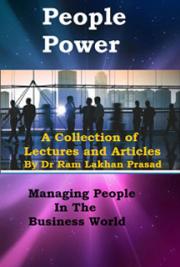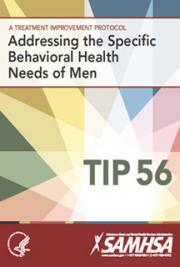Chapter 16
ONE morning confusion seemed to reign in the house, and Jemima came in terror, to inform Maria, "that her master had left it, with a determination, she was assured (and too many circumstances corroborated the opinion, to leave a doubt of its truth) of never returning. I am prepared then," said Jemima, "to accompany you in your flight."
Maria started up, her eyes darting towards the door, as if afraid that some one should fasten it on her for ever.
Jemima continued, "I have perhaps no right now to expect the performance of your promise; but on you it depends to reconcile me with the human race."
"But Darnford!"--exclaimed Maria, mournfully--sitting down again, and crossing her arms--"I have no child to go to, and liberty has lost its sweets."
"I am much mistaken, if Darnford is not the cause of my master's flight--his keepers assure me, that they have promised to confine him two days longer, and then he will be free--you cannot see him; but they will give a letter to him the moment he is free.--In that inform him where he may find you in London; fix on some hotel. Give me your clothes; I will send them out of the house with mine, and we will slip out at the garden-gate. Write your letter while I make these arrangements, but lose no time!"
In an agitation of spirit, not to be calmed, Maria began to write to Darnford.
She called him by the sacred name of "husband," and bade him "hasten to her, to share her fortune, or she would return to him."--An hotel in the Adelphi was the place of rendezvous.
The letter was sealed and given in charge; and with light footsteps, yet terrified at the sound of them, she descended, scarcely breathing, and with an indistinct fear that she should never get out at the garden gate. Jemima went first.
A being, with a visage that would have suited one possessed by a devil, crossed the path, and seized Maria by the arm. Maria had no fear but of being detained--"Who are you? what are you?" for the form was scarcely human. "If you are made of flesh and blood," his ghastly eyes glared on her, "do not stop me!"
"Woman," interrupted a sepulchral voice, "what have I to do with thee?"--Still he grasped her hand, muttering a curse.
"No, no; you have nothing to do with me," she exclaimed, "this is a moment of life and death!"--
With supernatural force she broke from him, and, throwing her arms round Jemima, cried, "Save me!" The being, from whose grasp she had loosed herself, took up a stone as they opened the door, and with a kind of hellish sport threw it after them. They were out of his reach.
When Maria arrived in town, she drove to the hotel already fixed on. But she could not sit still--her child was ever before her; and all that had passed during her confinement, appeared to be a dream. She went to the house in the suburbs, where, as she now discovered, her babe had been sent. The moment she entered, her heart grew sick; but she wondered not that it had proved its grave.
She made the necessary enquiries, and the church-yard was pointed out, in which it rested under a turf. A little frock which the nurse's child wore (Maria had made it herself) caught her eye. The nurse was glad to sell it for half-a-guinea, and Maria hastened away with the relic, and, reentering the hackney-coach which waited for her, gazed on it, till she reached her hotel.
She then waited on the attorney who had made her uncle's will, and explained to him her situation. He readily advanced her some of the money which still remained in his hands, and promised to take the whole of the case into consideration. Maria only wished to be permitted to remain in quiet--She found that several bills, apparently with her signature, had been presented to her agent, nor was she for a moment at a loss to guess by whom they had been forged; yet, equally averse to threaten or intreat, she requested her friend [the solicitor] to call on Mr. Venables. He was not to be found at home; but at length his agent, the attorney, offered a conditional promise to Maria, to leave her in peace, as long as she behaved with propriety, if she would give up the notes. Maria inconsiderately consented--Darnford was arrived, and she wished to be only alive to love; she wished to forget the anguish she felt whenever she thought of her child.
They took a ready furnished lodging together, for she was above disguise; Jemima insisting on being considered as her house-keeper, and to receive the customary stipend. On no other terms would she remain with her friend.
Darnford was indefatigable in tracing the mysterious circumstances of his confinement. The cause was simply, that a relation, a very distant one, to whom he was heir, had died intestate, leaving a considerable fortune. On the news of Darnford's arrival [in England, a person, intrusted with the management of the property, and who had the writings in his possession, determining, by one bold stroke, to strip Darnford of the succession,] had planned his confinement; and [as soon as he had taken the measures he judged most conducive to his object, this ruffian, together with his instrument,] the keeper of the private mad-house, left the kingdom. Darnford, who still pursued his enquiries, at last discovered that they had fixed their place of refuge at Paris.
Maria and he determined therefore, with the faithful Jemima, to visit that metropolis, and accordingly were preparing for the journey, when they were informed that Mr. Venables had commenced an action against Darnford for seduction and adultery. The indignation Maria felt cannot be explained; she repented of the forbearance she had exercised in giving up the notes. Darnford could not put off his journey, without risking the loss of his property: Maria therefore furnished him with money for his expedition; and determined to remain in London till the termination of this affair.
She visited some ladies with whom she had formerly been intimate, but was refused admittance; and at the opera, or Ranelagh, they could not recollect her.
Among these ladies there were some, not her most intimate acquaintance, who were generally supposed to avail themselves of the cloke of marriage, to conceal a mode of conduct, that would for ever have damned their fame, had they been innocent, seduced girls. These particularly stood aloof.--Had she remained with her husband, practicing insincerity, and neglecting her child to manage an intrigue, she would still have been visited and respected. If, instead of openly living with her lover, she could have condescended to call into play a thousand arts, which, degrading her own mind, might have allowed the people who were not deceived, to pretend to be so, she would have been caressed and treated like an honourable woman. "And Brutus* is an honourable man!" said Mark-Antony with equal sincerity.
* The name in the manuscript is by mistake written Caesar. EDITOR.
[Godwin's note]
With Darnford she did not taste uninterrupted felicity; there was a volatility in his manner which often distressed her; but love gladdened the scene; besides, he was the most tender, sympathizing creature in the world. A fondness for the sex often gives an appearance of humanity to the behaviour of men, who have small pretensions to the reality; and they seem to love others, when they are only pursuing their own gratification. Darnford appeared ever willing to avail himself of her taste and acquirements, while she endeavoured to profit by his decision of character, and to eradicate some of the romantic notions, which had taken root in her mind, while in adversity she had brooded over visions of unattainable bliss.
The real affections of life, when they are allowed to burst forth, are buds pregnant with joy and all the sweet emotions of the soul; yet they branch out with wild ease, unlike the artificial forms of felicity, sketched by an imagination painful alive. The substantial happiness, which enlarges and civilizes the mind, may be compared to the pleasure experienced in roving through nature at large, inhaling the sweet gale natural to the clime; while the reveries of a feverish imagination continually sport themselves in gardens full of aromatic shrubs, which cloy while they delight, and weaken the sense of pleasure they gratify. The heaven of fancy, below or beyond the stars, in this life, or in those ever-smiling regions surrounded by the unmarked ocean of futurity, have an insipid uniformity which palls. Poets have imagined scenes of bliss; but, sencing out sorrow, all the extatic emotions of the Soul, and even its grandeur, seem to be equally excluded. We dose over the unruffled lake, and long to scale the rocks which fence the happy valley of contentment, though serpents hiss in the pathless desert, and danger lurks in the unexplored wiles. Maria found herself more indulgent as she was happier, and discovered virtues, in characters she had before disregarded, while chasing the phantoms of elegance and excellence, which sported in the meteors that exhale in the marshes of misfortune. The heart is often shut by romance against social pleasure; and, fostering a sickly sensibility, grows callous to the soft touches of humanity.
To part with Darnford was indeed cruel.--It was to feel most painfully alone; but she rejoiced to think, that she should spare him the care and perplexity of the suit, and meet him again, all his own. Marriage, as at present constituted, she considered as leading to immorality--yet, as the odium of society impedes usefulness, she wished to avow her affection to Darnford, by becoming his wife according to established rules; not to be confounded with women who act from very different motives, though her conduct would be just the same without the ceremony as with it, and her expectations from him not less firm. The being summoned to defend herself from a charge which she was determined to plead guilty to, was still galling, as it roused bitter reflections on the situation of women in society.







